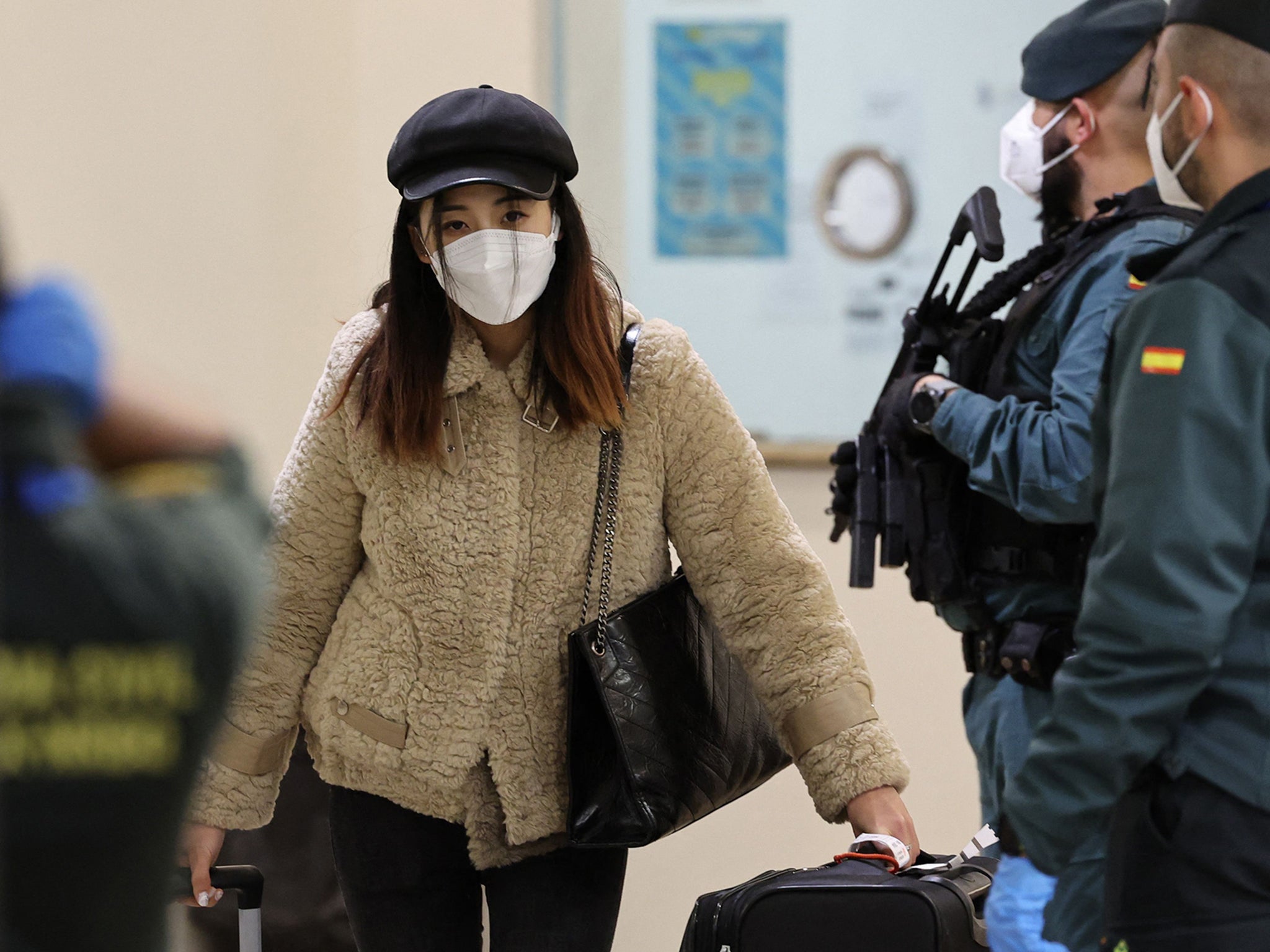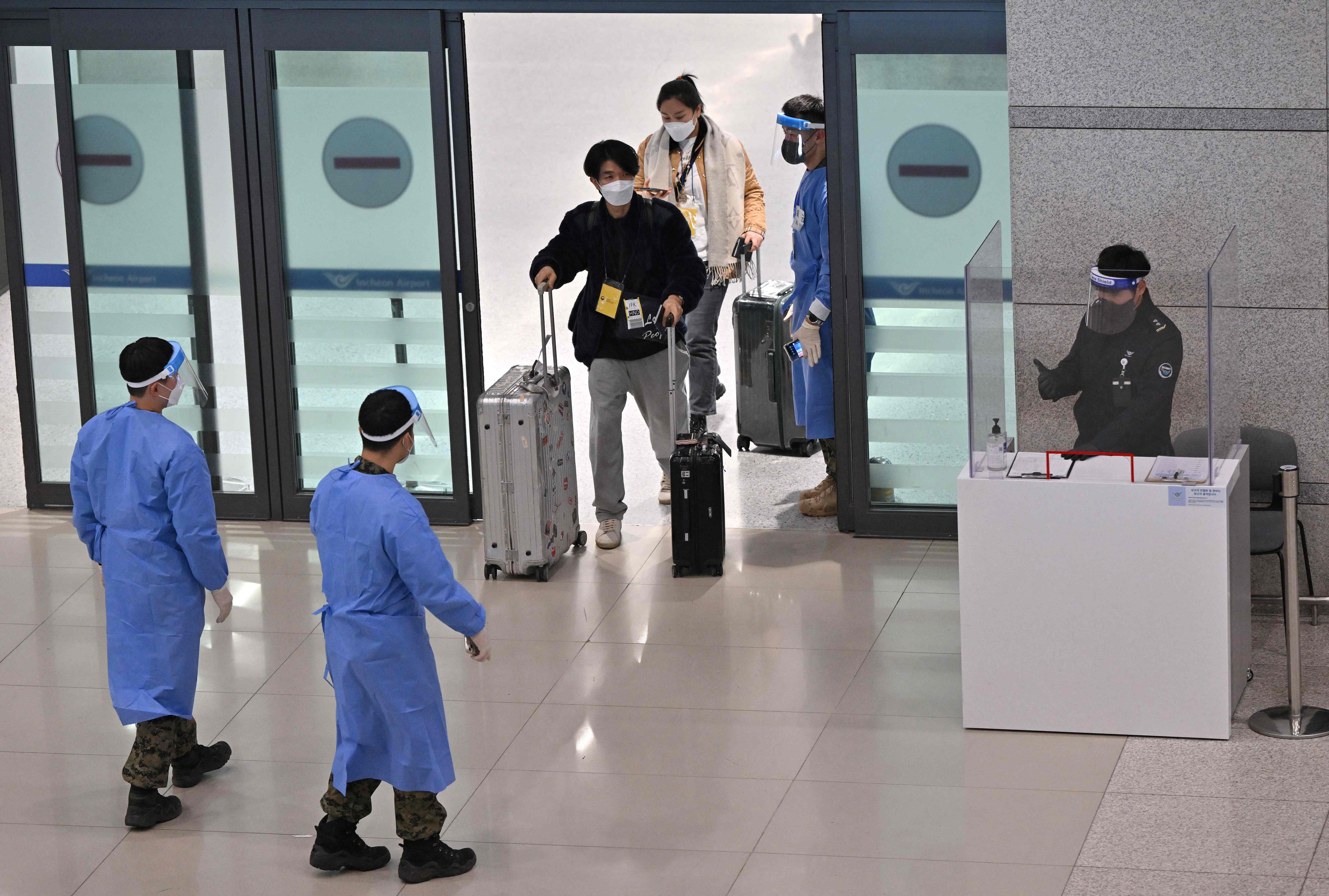China hits out at ‘unacceptable’ Covid restrictions imposed on its travellers
Beijing says measures ‘lack scientific basis’ and threatens retaliation
Your support helps us to tell the story
From reproductive rights to climate change to Big Tech, The Independent is on the ground when the story is developing. Whether it's investigating the financials of Elon Musk's pro-Trump PAC or producing our latest documentary, 'The A Word', which shines a light on the American women fighting for reproductive rights, we know how important it is to parse out the facts from the messaging.
At such a critical moment in US history, we need reporters on the ground. Your donation allows us to keep sending journalists to speak to both sides of the story.
The Independent is trusted by Americans across the entire political spectrum. And unlike many other quality news outlets, we choose not to lock Americans out of our reporting and analysis with paywalls. We believe quality journalism should be available to everyone, paid for by those who can afford it.
Your support makes all the difference.Beijing has condemned the “unacceptable” introduction of Covid testing on passengers arriving from China to several countries.
Chinese officials said the entry restrictions “lack scientific basis” and threatened retaliatory action.
Foreign ministry spokesperson Mao Ning said: “We are firmly opposed to attempts to manipulate the Covid measures for political purposes and will take counter-measures based on the principle of reciprocity.”
“Some countries have taken entry restrictions targeting only Chinese travellers,” she added. “This lacks scientific basis and some practices are unacceptable.”
Since Beijing abandoned its “zero Covid” policy, the virus has spread through the People’s Republic, reaching 250 million cases by 20 December, or around one-sixth of China’s population, according to leaked official estimates. The government stopped publishing data days after this figure was reported.
Despite the surge, Beijing plans to ease international travel restrictions on 8 January, allowing more citizens to leave.
Australia and Canada this week joined a growing list of countries requiring travellers from China to take a Covid test before boarding their flight as the country battles a nationwide outbreak of coronavirus after abruptly easing restrictions that were in place for much of the pandemic.
Britain will also require travellers to test before boarding an inbound flight but, as The Independent revealed, has decided to make a second test on landing optional.
Other countries including the US, India, Japan and several European nations have also announced measures on Chinese travellers amid concerns over a lack of data on infections in China and fears that new variants could spread.
Japan has taken the step of testing any incoming passengers who have been in China in the past seven days. The health ministry in Tokyo said: “Those who test positive will be required to quarantine at a designated facility.”

Authorities in Beijing said that from 8 January, overseas travellers would no longer need to quarantine on arriving in China, paving the way for Chinese residents to travel.
The European Union has offered free Covid-19 vaccines to China, a spokesperson for the European Commission said. He did not specify the amount of vaccines the EU was offering or their manufacturers.
“In view of the Covid situation in China, [health] commissioner Stella Kyriakides has reached out to her Chinese counterparts to offer EU solidarity and support,” he said.
“This includes public health expertise as well as variant-adapted EU vaccine donations.”

China has not responded to the offer yet, he said.
Asked whether Beijing would accept the EU offer, Ms Ning sidestepped a direct reply, telling Reuters that China‘s vaccination rate and treatment capacity continued to rise and its supplies were “adequate”.
China has so far insisted on using only Chinese-made vaccines - which are of the inactivated virus type and not based on the Western mRNA technology – for its own population.
Last month, Germany shipped 11,500 BioNTech COVID vaccines to German companies and embassy and consulate locations in China for use by German nationals there.
Agencies contributed to this report



Join our commenting forum
Join thought-provoking conversations, follow other Independent readers and see their replies
Comments